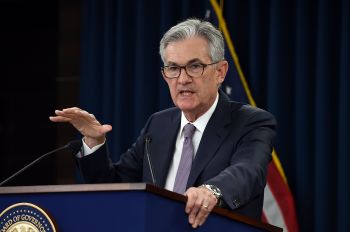The money market illusion
One of the scariest moments during the financial crisis in the fall of 2008 was when a leading money market fund, the Reserve Primary Fund, “broke the buck.” The point of buying shares in a money market fund is that they supposedly never lose money; if you put in a dollar, you can always take a dollar out. When the value of a share drops below a dollar, that’s “breaking the buck.”
Reserve Primary had invested in Lehman Brothers, and when Lehman went under, those investments suddenly were worth nothing, meaning the fund lost a lot of money. It was forced to lower the value of its shares below a dollar, to $0.97 cents. Investors rushed to cash in their shares, fearing they might not be able to get their money back. Investors in other funds started to wonder if their funds had made similar investments, and whether they should sell their shares, too. The Treasury Department and the Federal Reserve had to step in with financial backing for Reserve Primary.
It wasn’t as much about saving Reserve Primary as it was about restoring faith in money market funds generally. Big companies use money markets for much of their short-term borrowing. When people started selling out of money market funds, the funds naturally had less cash to lend to companies. As that funding source began to dry up, the government and the Fed began to worry about the effect that could have on the economy.
Today all seems calm in the money market world, but Eric Rosengren, president of the Federal Reserve Bank of Boston, says these funds still may not be as safe as investors think. He says they dona€™t have enough cash in reserve to protect them if things go wrong. Despite recent reforms, if just one fund goes bad, it could trigger another run on money markets, and freeze short-term credit markets just when we need them to be as liquid as possible. In a recent speech, Rosengren called for money market funds to have bigger capital cushions. That way the fund could absorb losses more readily.
Professor James Angel of Georgetown University says the proposed capital requirements are a good idea, but making the cushions the right size is a delicate business. “How much of a buffer does a fund need?” he asks.
If the cushion is too fat, then it becomes too expensive to run the fund. That could reduce the interest rate the fund pays out to investors. Less yield means less incentive to invest, and if investors don’t put their money in, companies can’t get any money out.
Former Fed Chairman Paul Volcker suggested recently that instead of promising a dollar in, a dollar out, money market funds should advertise the little fluctuations in the value of their shares each day. Angel is against money market funds having a “floating share price.” He says that could actually destroy the industry, because it could subvert the concept of money markets as a stable place to store cash. Money market fund shares are thought of as an equivalent to cash. A floating share price would persuade investors that it’s not like cash at all. That would make them less attractive to investors, and thus less useful to businesses. He says that having this “super-safe” category of investment vehicle is a consumer protection and that without money markets, investors would just put their money into riskier assets.
Also on the show today, Bank of America said that you’ll be paying five bucks a month for a debit card starting next year. If you just use your card for ATM withdrawals, you escape the fee, but a single purchase with your plastic will earn you a $5 ding. This fee is likely to put a crimp in consumer spending, just when we need more of it. The news that BofA’s nickel-and-diming could constrict the country’s blood supply is having an adverse effect on the Marketplace Daily Pulse today.
There’s a lot happening in the world. Through it all, Marketplace is here for you.
You rely on Marketplace to break down the world’s events and tell you how it affects you in a fact-based, approachable way. We rely on your financial support to keep making that possible.
Your donation today powers the independent journalism that you rely on. For just $5/month, you can help sustain Marketplace so we can keep reporting on the things that matter to you.


















